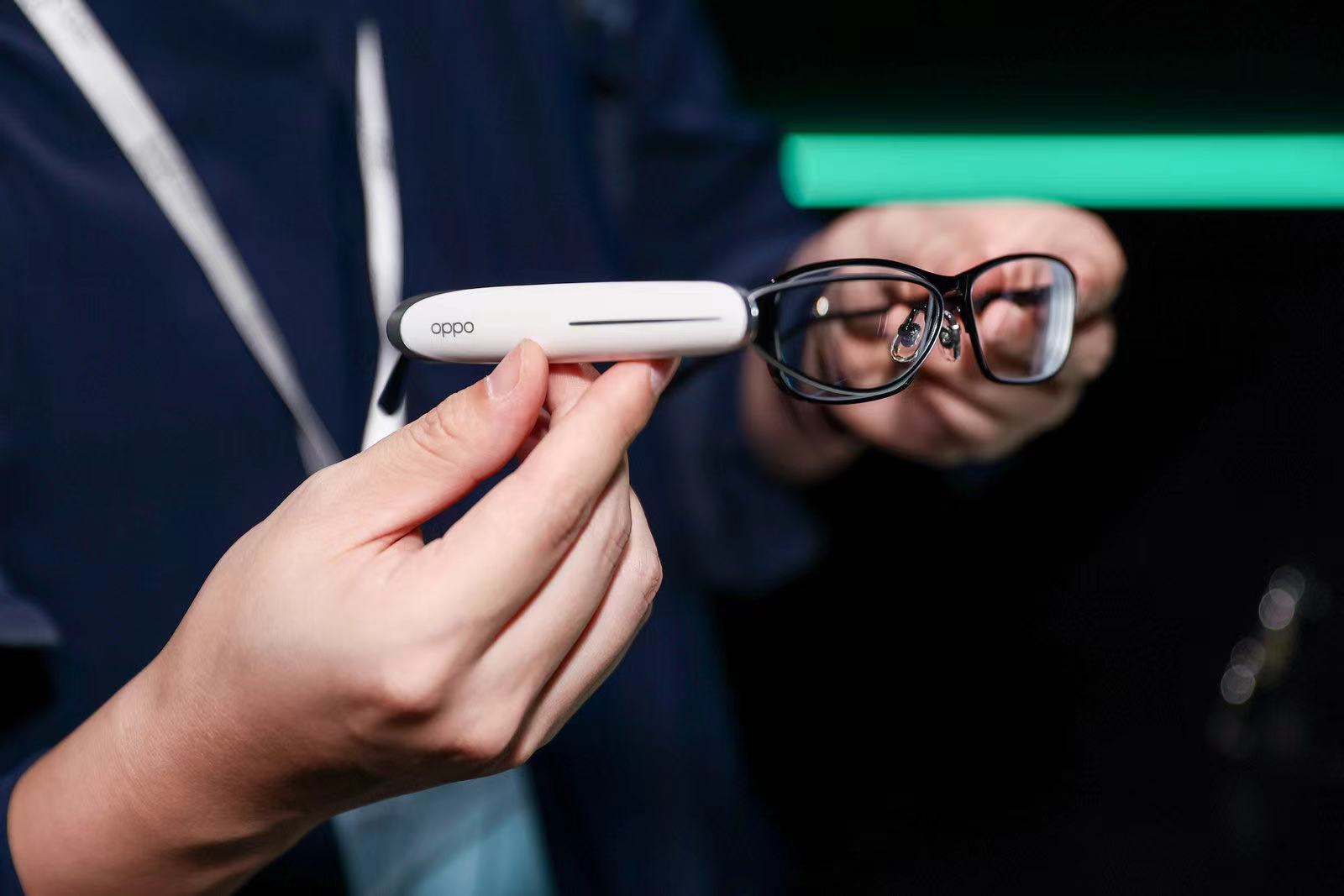R
Rita Liao
Guest
Chinese smartphone giant Oppo revealed its first in-house chipset at its annual innovation event hosted in Shenzhen on Tuesday. The MariSilicon X chip announced — named after the Mariana Trench — is a neural processing unit that aims to boost photo and video performance through machine learning.
The move adds Oppo to a list of smartphone makers that are designing their own chips, such as Apple. The MariSilicon project, headed by Qualcomm veteran Jiang Bo, started only in 2019.
The silicon is being manufactured by Taiwan Semiconductor Manufacturing Co (TSMC)’s 6-nanometer process technology and will be featured in Oppo’s upcoming flagship handset in the first quarter of 2022. The ongoing global chip shortage will not affect the production of MariSilicon X, Jiang told the press at the event.
Oppo also unveiled the third generation of its self-developed smart glasses, dubbing it an “assisted reality” device instead of an augmented reality one.
The description is apt. The headpiece, which weighs just 30g, is reminiscent of Google Glass. It uses the Snapdragon 4100 chip, which is normally found in smartwatches, and it’s indeed limited to projecting 2D information such as navigation and translation onto its 1.3mm-thick glasses. It works as an extension of one’s smartphone, or like a smartwatch with a screen in front of one’s eyes, rather than an AR device that’s aware of one’s environment. It’s slated to ship next spring.

Oppo’s new ‘assisted reality glasses
The third piece of product unveiled is Oppo’s first folding phone, which came a year after its concept scrolling phone. Details of the folding phone will be announced tomorrow, at which point we will update the story accordingly.
What we know so far is the new phone is spearheaded by Pete Lau, Oneplus’s co-founder who was appointed Oppo’s chief product officer after OnePlus became Oppo’s subbrand this year.
Both owned by the BKK Electronics empire, OnePlus and Oppo shared a supply chain prior to the merger but were operating independently. The merger has seen the two phone makers combining operational and R&D forces, including their operating systems, while the brands remain separate.
OnePlus’s other co-founder, Carl Pei, has been drumming up buzz for his new earbud venture Nothing, which has won over investors and a horde of early followers.
The move adds Oppo to a list of smartphone makers that are designing their own chips, such as Apple. The MariSilicon project, headed by Qualcomm veteran Jiang Bo, started only in 2019.
The silicon is being manufactured by Taiwan Semiconductor Manufacturing Co (TSMC)’s 6-nanometer process technology and will be featured in Oppo’s upcoming flagship handset in the first quarter of 2022. The ongoing global chip shortage will not affect the production of MariSilicon X, Jiang told the press at the event.
Oppo also unveiled the third generation of its self-developed smart glasses, dubbing it an “assisted reality” device instead of an augmented reality one.
The description is apt. The headpiece, which weighs just 30g, is reminiscent of Google Glass. It uses the Snapdragon 4100 chip, which is normally found in smartwatches, and it’s indeed limited to projecting 2D information such as navigation and translation onto its 1.3mm-thick glasses. It works as an extension of one’s smartphone, or like a smartwatch with a screen in front of one’s eyes, rather than an AR device that’s aware of one’s environment. It’s slated to ship next spring.

Oppo’s new ‘assisted reality glasses
The third piece of product unveiled is Oppo’s first folding phone, which came a year after its concept scrolling phone. Details of the folding phone will be announced tomorrow, at which point we will update the story accordingly.
What we know so far is the new phone is spearheaded by Pete Lau, Oneplus’s co-founder who was appointed Oppo’s chief product officer after OnePlus became Oppo’s subbrand this year.
Both owned by the BKK Electronics empire, OnePlus and Oppo shared a supply chain prior to the merger but were operating independently. The merger has seen the two phone makers combining operational and R&D forces, including their operating systems, while the brands remain separate.
OnePlus’s other co-founder, Carl Pei, has been drumming up buzz for his new earbud venture Nothing, which has won over investors and a horde of early followers.
